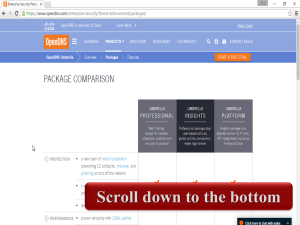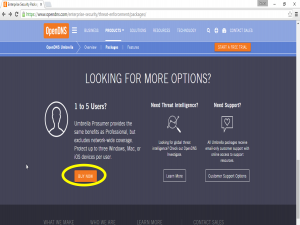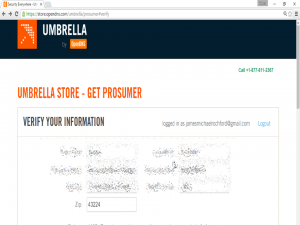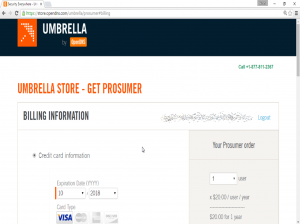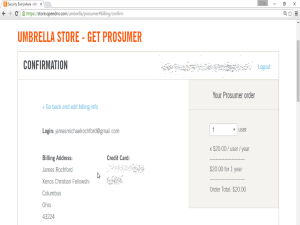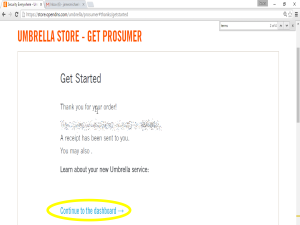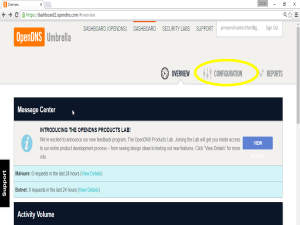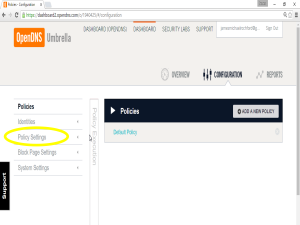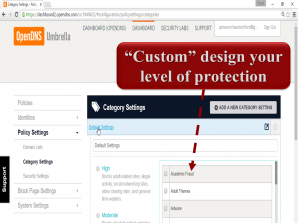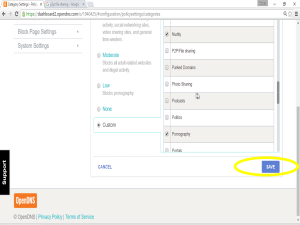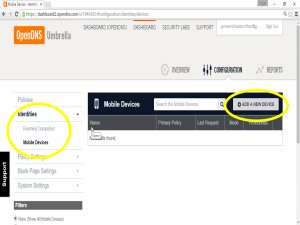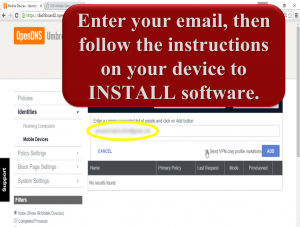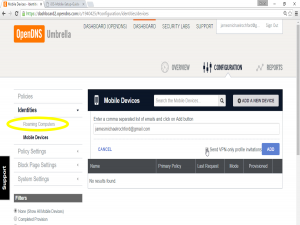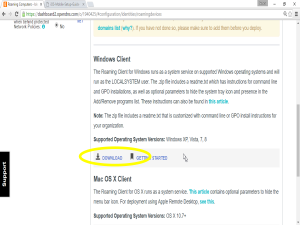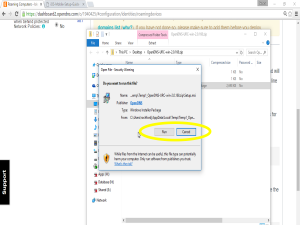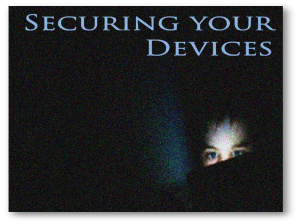 Christians who struggle with pornography realize that they need help, but some are hesitant to turn to accountability software. After all, isn’t lust an issue of the heart? Doesn’t accountability software just “polish the outside of the cup,” rather than deal with the inner heart issues? Isn’t this just a legalistic cure for a deeper heart issue?
Christians who struggle with pornography realize that they need help, but some are hesitant to turn to accountability software. After all, isn’t lust an issue of the heart? Doesn’t accountability software just “polish the outside of the cup,” rather than deal with the inner heart issues? Isn’t this just a legalistic cure for a deeper heart issue?
Of course, we would agree that it’s possible for someone to use accountability software legalistically. If you think accountability software is going to “fix” your problem with lust, you’re sadly mistaken. Yet you would be equally mistaken to think that accountability software is contradictory to grace-based spiritual growth. Accountability software is just a tool in the hands of the believer. If you are legalistically minded, then you will abuse accountability software. But if you wield this tool under grace, it can help you considerably.
A fatalistic attitude will cavalierly state, “There is no way to keep pornography out of the home. You can’t protect your family 100%, so why even bother?” Yet this perspective is patently false! Consider a comparison: If you had $200,000 in your retirement, where would you keep it? A bank vault? An investment package? Or underneath your mattress? If you had liquor in your house, where would you keep it? In a locked cabinet, or on the shelf in your teenage son’s bedroom?
While nothing is 100% secure, you can protect yourself and your family to a tremendous degree.
This is really a false dilemma
Accountability isn’t the final step in battling pornography, but it might be the first step God wants you to take. We shouldn’t think of this as “either/or” but as “both/and.” Consider an alcoholic sitting alone in his apartment. If he’s struggling with drunkenness, it would make perfect sense for him to dump his bottles of liquor down the toilet. Knowing his temptation with alcohol, it wouldn’t make sense to keep bottles of liquor on his shelf at home—the temptation would be too great for him to handle. Of course, this step wouldn’t solve his drinking problem, but would we call his action legalistic? Hardly! God will surely have more steps for this man to take, but the first step would be to get the booze out of his house.
The Bible teaches that we should have a realistic view regarding our sin nature
Humans suffer from total depravity. This biblical teaching doesn’t mean that human beings are as sinful as they possibly could be. Instead, it teaches that sin affects every aspect of our nature. It’s simply a fundamental part of human nature to be selfish or to lie. While Christ can certainly transform our character, we still live with the realization that “nothing good dwells in me” (Rom. 7:18). Thus Paul tells us to “put no confidence in the flesh” (Phil. 3:3).
Consider 2 Corinthians 8 as a key example of this principle: Paul collected a large sum of money from the Gentile churches to take to the church in Jerusalem. Yet throughout this chapter, we discover the great lengths to which Paul went in order to keep accountable to his fellow believers. He writes, “We want to avoid any criticism of the way we administer this liberal gift. For we are taking pains to do what is right, not only in the eyes of the Lord but also in the eyes of men” (2 Cor. 8:20-21 NIV). While Paul was a very faithful Christian, he desired accountability nonetheless.
The Bible teaches that we should take a radical step away from sexual immorality
If someone asked me if I’m “running from my problem” by getting accountability, I would emphatically say, “Yes! Guilty as charged!” After all, this is precisely what the Bible teaches. For most temptation, the Bible teaches us to “stand firm” (Eph. 6:11). But not sexual temptation! Sexual temptation is so powerful that the Bible tells us to “flee” (1 Cor. 6:18). The term “flee” (pheugete) literally means “to seek safety in flight… to become safe from danger by eluding or avoiding it… to keep from doing something by avoiding it because of its potential damage.”[1] Sexual temptation is so powerful that Paul simply tells us to “make no provision for the flesh in regard to its lusts” (Rom. 13:14). Likewise, Jesus prayed, “Do not lead us into temptation, but deliver us from evil” (Mt. 6:13). If we find ourselves continually tempted by pornography, the biblical answer is to take a radical step to flee from this (cf. Mt. 5:29).
God designed spiritual growth to be most effective in the context of spiritual community
We need fellow believers to grow spiritually:
“If anyone is caught in any trespass, you who are spiritual, restore such a one in a spirit of gentleness; each one looking to yourself, so that you too will not be tempted. Bear one another’s burdens, and thereby fulfill the law of Christ” (Gal. 6:1-2).
“I myself also am convinced that you yourselves are full of goodness, filled with all knowledge and able also to admonish one another” (Rom. 15:14).
“Confess your sins to one another, and pray for one another so that you may be healed. The effective prayer of a righteous man can accomplish much” (Jas. 5:16).
“Flee from youthful lusts and pursue righteousness, faith, love and peace, with those who call on the Lord from a pure heart” (2 Tim. 2:22).
From these passages, we discover that we need fellow believers to restore us, to bear our burdens, to give us correction, to hear about our struggles, and to pray for us. Without accountability, we might miss out on these tools for spiritual growth. By getting accountable, we are effectively taking a step toward other believers, opening up conversations where we can get the support and counsel that we need.
Perpetual guilt kills spiritual growth
Accountability helps us from going through long stretches of unconfessed sin. Instead, we’re likely to experience the healing of confession much quicker. David wrote, “When I kept silent about my sin, my body wasted away through my groaning all day long. 4 For day and night Your hand was heavy upon me; my vitality was drained away as with the fever heat of summer” (Ps. 32:3-4). Have you experienced what David is describing here? Getting accountable helps to avoid going through long stretches of guilt just like this. As James writes, “Confess your sins to one another, and pray for one another so that you may be healed” (Jas. 5:16).
When we repeatedly fall into porn, we become more addicted—not less. Jesus taught, “Everyone who commits sin is the slave of sin” (Jn. 8:34). We need a break from this sin before we can start to feel like we’re seeing any progress. Accountability can help us to see a break like this.
Questions to ask yourself
If you have a history of repeatedly falling into porn, how do you know you’re not “putting confidence in the flesh” by not taking a step to get accountable to fellow believers?
If you struggle with pornography and do not want accountability, how do you know you’re not being naïve regarding your sin nature?
Realistically, what do you think will change in your porn habit if you do not take a step to get accountable to other believers?
What does it look like for you to “flee” sexual immorality?
Are you afraid that other believers would think less of you if you became accountable to them? What is your biggest fear in becoming accountable to other believers?
Accountability software
While there are many different accountability software services, we suggest Accountable2U. It has arguably the best software, and it’s relatively cheap ($4.99 per month). They also have a “Group Plan” which is $4.99 per month and only $1.99 for each additional person. Therefore, a group of ten guys could all use this plan and only pay $23 per month.
If you put XENOS in the promo code box, you will get the first month of service for free, and Xenos Christian Fellowship will receive 15% of your payment.
How do I set it up?
Here are several YouTube tutorials for setting up Accountable2U. These will give step-by-step instructions:
“How do I set up Accountable2U in general?”
“How do I set up Accountable2U on my Android?”
“How do I set up Accountable2U on my iPhone or iPad?”
What about software for iOS devices? (e.g. iPhone, iPad, iPod Touch, etc.)
In order for Accountable2U to work on an iOS device, you need to set up restrictions on the device, so that the Accountable2U browser is the only way to get online. On iOS devices, Accountable2U software doesn’t monitor other apps. Instead, your accountability report only comes from the Internet use on the Accountable2U browser. On other devices such as Android, the Accountable2U software works much easier.
To do this, launch the “Settings” app and click “General.” Then, click on “Restrictions” and click “Enable Restrictions.” Have your accountability partner enter a four-digit passcode for you. Make sure they write this down, because it is easy to forget. After they have enabled this, turn off the other apps on the phone. Make sure you disable “Safari” and “Installing Apps.”
If you do not do this final step, Accountable2U will be worthless on your phone. This is because you could install any other browser, and your device would be unaccountable at that point. In order for the accountability software to work, all traffic needs to run through the Accountable2U Internet browser. So all apps (with any browser capability) and other browsers need to be disabled by your accountability partner.
Setting “Restrictions” on iOS devices
Apple devices have blocking on them to limit adult content. To set these, you need to follow the same process as above:
To do this, launch the “Settings” app and click “General.” Then, click on “Restrictions” and click “Enable Restrictions.” Have your accountability partner enter a four-digit passcode for you. Make sure they write this down, because it is easy to forget. After they have enabled this, turn off the other apps on the phone. Make sure you disable “Safari” and “Installing Apps.”
Once this is done, scroll down to “Websites” and then set your level of protection on your browsers (“Limit Adult Content”).
For children, you can create settings under “Movies” (e.g. G, PG, PG-13, etc.).
Apparently, iOS is moving toward running all of its apps through Safari. If this is the case, it would save a lot of hassle! Software like Accountable2U could monitor Safari, rather than having its own browser. We’ll need to wait and see…
How much of an inconvenience is this?
It adds an extra step in opening any sort of link (e.g. email). If you try to click links in your email, they will not open. Instead, hold down the link for two seconds, and click “Copy.” Then open up your Accountable2U browser and paste the link. This gives you an additional step in opening a link, but really only takes a few seconds.
It would limit SIRI. You could still use SIRI for texting, calling opening apps, maps, etc. But you couldn’t ask SIRI to search for something on the Internet, because SIRI uses Safari.
It is an inconvenience in downloading apps on your phone. Instead of having the liberty to download an app, you need to have your accountability partner enter his four-digit password first. Make sure to pick a partner whom you see regularly (e.g. a spouse, roommate, coworker, etc.). That way, you can have access to whatever apps you want on your phone.
How effective are porn blockers? (OpenDNS Umbrella)
Porn blockers do not work for someone who truly desires to get into porn. Some people become excited by blockers, because it becomes like a game that they need to beat. With enough work, they always do. Porn is all over the Internet, and if we truly want to find porn, we can get at it—blockers or not.
On the other hand, porn blockers can be useful. While they don’t seem to help porn users by themselves, they seem to work best when used alongside accountability software.
We suggest OpenDNS Umbrella. It is $20 per year per user (covering up to 5 devices). It can block different types of content (e.g. porn, nudity, lingerie, adult content, etc.) to the degree that you would like. The benefit of this service is that it can offer protection on devices whether you are on the home Wifi or using data. And it works on iOS or Windows.
To install this on your computer, begin by buying the software “OpenDNS Umbrella.” Once you buy the software, click “Continue to the dashboard.”
Once you’re on your Dashboard, click “Configuration.” Then click “Policy Settings” to set your level or protection. Do this by clicking “Default Settings” and then “Save” your settings.
To add a computer, click “Identities” and “Roaming Computers.” Download the software for your computer by clicking “Download” and then follow instructions.
To add devices, click “Identities” and “Mobile Devices” and “Add New Device.” You will be asked to put in an email that the mobile device can reach. Pull out your device and check your email to “Install” the software on your device.
IT help
If you’re in my fellowship, you can get IT help on how to work with your devices on this website—run by my friend Vince Mitchell. The site is securingyourhome.net.
[1] Arndt, W., Danker, F. W., & Bauer, W. (2000). A Greek-English lexicon of the New Testament and other early Christian literature (3rd ed., p. 1052). Chicago: University of Chicago Press.









